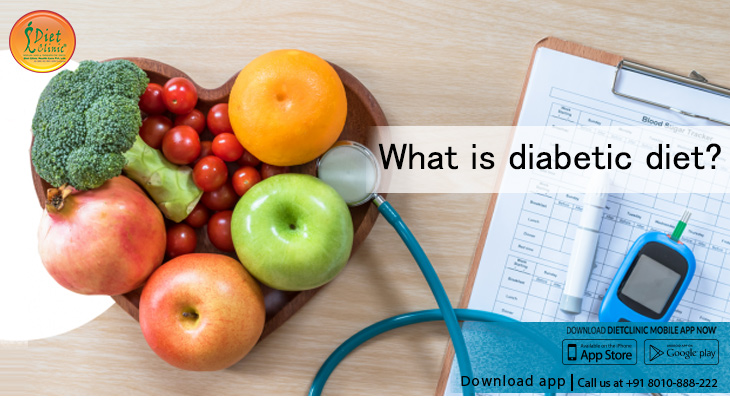
Dietician Sheela Seharawat
What is diabetic diet?
A diabetic diet simply means eating the healthiest foods in average amount and follows the regular mealtimes. A diabetic diet is a healthy-eating plan that is naturally rich in nutrients and low in fat and calories. It also maintains the sugar level of your body. The primary elements of this diet are fruits, vegetables and whole grains. A diabetic diet is the best eating plan for most everyone. This plan helps you to control your blood sugar (glucose), manage your weight and control risk factors for heart disease, such as high blood pressure and high blood fats.
What are the healthy diabetic diet details?
A diabetes diet is based on eating three meals a day at regular intervals. This helps your body to metabolize the food in a better way. A dietician will tell you about how to improve your eating habits, how to make your meals more healthy and less rich in fat and oils. Include best foods in your eating plan. Maintain sugary foods and sweets into your healthy meal plan. Having diabetes does not mean that you can no longer enjoy good food. Living with diabetes means eating regular and healthy meals from grains, starches, vegetables, fruits, milk and alternatives, meat and alternatives.
What to eat in diabetes?
Healthy carbohydrates: During digestion carbohydrates like sugar and starches break down into blood glucose. Focus on the healthiest carbohydrates, such as fruits, vegetables, whole grains, legumes (beans, peas and lentils) and low-fat dairy products.
Fibre-rich foods: Foods high in fibre include vegetables, fruits, nuts, legumes (beans, peas and lentils), whole-wheat flour and wheat bran. Dietary fibre includes all parts of plant that your body cannot digest or absorb normally.
Healthy fish: Eat heart-healthy fish at least twice a week.
Good fats: These include avocados, almonds, pecans, walnuts, olives and canola, olive and peanut oils. Don’t overdo it, as all fats are high in calories.
What you should not do in your diabetic diet?
Do not skip meals.
Avoid heavy and fatty meals.
Don’t add sugar to your food.
Saturated fats such as butter, coconut oil and palm oil should be avoided.
Do not eat too salty foods.
Food which contains Trans fats should be avoided. These fats are found in processed snacks and baked goods.
High-fat dairy products and animal proteins such as beef, hot dogs, sausage and bacon are also not to be considered in your diabetic plan.
Avoid drinking sugar-sweetened beverages like sodas and fruit juices.
How to create a plan?
A few approaches to create a diabetic diet plan will always help you to keep your blood glucose level within a normal range.
1. When preparing your plate, fill one half of it with non starchy vegetables, such as spinach, carrots and tomatoes. Fill one-quarter with a protein, such as tuna or lean pork. Fill the last part with a whole grain item. Add a serving of fruit or dairy.
2. Learn how to measure food portions and read the food labels before purchasing.
3. Pay special attention to serving size and carbohydrate content.
4. To control your blood sugar, eat same amount of carbohydrate every day.
Day 6
How to shop healthy foods?
Before you shop, plan your meals for duration of time and include a variety of foods from the food groups. Create a grocery list from your meal plan. Bring your list and stick with it. Never shop hungry, since this often leads to impulse choices of less healthy foods. Avoid the sugary soda, sweets and chips. Shop the perimeter of the store, such as the produce section; that’s where the “real food” versus the preserved food is. Check food labels to help you make healthy choices. When eating out in a restaurant you can be in control of what you eat.
Positive Note
Embracing your healthy-eating plan is the best way to keep your blood glucose level under control and prevent diabetes complications. If you need to lose weight, you can tailor it to your specific goals. Aside from managing your diabetes, a diabetes diet offers other benefit too. A diabetes diet recommends generous amounts of fruits, vegetables and fibre. It will eventually reduce your risks of cardiovascular diseases and certain types of cancer. Consuming low-fat dairy products can reduce your risk of low bone mass in the future. Use healthy foods, portion control and scheduling to manage your blood glucose level.








